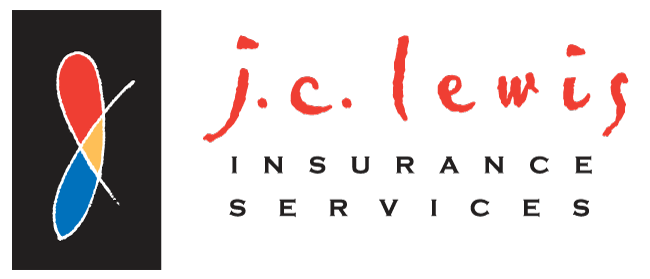“56% of small businesses with 3 to 199 employees offer health insurance benefits.” – Kaiser Family Foundation
Congratulations! You’ve decided to offer health insurance coverage for your employees. Not only is that a valuable benefit to your workers, but it’s a benefit to your business.
But now you have to decide what plan and which components to include, and so on. It can be a bit overwhelming, especially if this is your first venture into health insurance coverage.
Here are some tips for what to look for in a small business health insurance package.
Types of Health Plans
There are essentially five types of small business health insurance plans for groups. Your choices run from the managed care options that include HMO, PPO, and POS, to indemnity fee-for-service,and high -deductible health plans. Depending on where your business is located, there are likely specific plans available.
Probably the most common choice is the Health Maintenance Organization, or HMO. These plans only cover medical services received at an in-network provider. Health care is managed through a primary care physician (PCP) and patients must get a referral from their PCP in order to receive treatment from a specialist. The only exceptions for referrals are emergency room visits and routine, in-network care from obstetricians or gynecologists.
HMO plans are more restricted so monthly premiums and copays are usually lower than plans such as a PPO plan.
A Preferred Provider Organization (PPO) provides more flexibility by allowing members to visit an in-network or out-of-network provider. However, the plan provides a lower percentage of coverage for out-of-network services. In addition, having a PCP is not required and PPO plans usually have coinsurance and annual deductibles.
A less common selection is the Point of Service, POS plan. This type of plan is a hybrid of HMO and PPO plans. Like an HMO plan, a POS requires that patients first see their PCP to receive care and get a referral in some cases. And, like the PPO, it allows patients to receive some covered services at a provider outside the plan’s network, although some medical services may not be covered out-of-network. Also, members have to file all their claims forms themselves.
An FFS, or Fee for Service plan, is also known as indemnity health insurance. It is a plan that lets members visit any physician, specialist, and hospital they choose but has much higher out-of-pocket costs. Some versions of an FFS will pay healthcare providers directly or reimburse members for covered services after a claim has been submitted. An FFS plan can include a PPO option depending on the service area.
And, finally, there is a High Deductible Health Plan (HDHP). Typically recommended for younger members who rarely use medical services, the plan has high annual deductibles. In addition, medical costs are all out-of-pocket until the deductible is met. On the other hand, the HDHP plan usually has a lower monthly premium than other plan types. In a small group health insurance benefits package, this plan is usually paired with a health savings account (HSA) that is funded through pretax employee deductions to pay for out-of-pocket healthcare expenses.
Other Health Insurance Package Considerations
While overall cost is an important factor in deciding which small business health insurance plan to choose, there are employee considerations, as well.
If a plan has a limited network of providers, for example, it may cost less than comparable plans, but not have the hospitals or physicians your employees want to use. One way to help with choosing a plan is to know what other small businesses are doing.
The KFF 2018 Employer Health Benefits Survey revealed that:
- 81 percent of small companies (3-199 employees) offer one type of plan
- 16 percent of small firms offer 2 types of plans
- 3 percent of small firms offer 3 or more plans
- Among small firms:
- Less than 1 percent of employees are covered under a conventional indemnity plan
- 32 percent of employees have HMO coverage
- 14 percent of employees are enrolled in a POS plan
- 27 percent of employees have an HDHP plan with a savings option
- 49 percent of employees have coverage through a PPO
Another finding in the survey was the average employer premium contributions in 2018. For single health coverage it was $5,681 and for family health coverage, the employer contribution was $11,957 per month.
It’s also important to know that because health insurance products and premium rates are regulated by the Department of Insurance each state, the premium an insurance company charges for a specific health plan must be the same regardless of where you buy the plan.
Choosing a Small Business Health Insurance Package: Don’t Go It Alone
As a business owner you already understand the wisdom and value of getting the services of industry experts. It’s no different when it comes to small business health insurance.
According to an article from HealthMarkets.com,
“Working with an agent offers many advantages, such as:
- Advice: Searching for health insurance on your own can potentially be overwhelming. By working with an agent, you have a knowledgeable insurance consultant to help you navigate the health insurance waters so you can focus on priority number one: running your company.
- Licensed professional: Working with a licensed agent offers a sense of security because you know you’re working with someone who meets the state’s regulatory requirements to sell insurance products. You also get someone with the industry knowledge to help you understand health insurance terms and processes.
- Local help:With a local agent who can meet with you in person, it may be easier to get answers immediately rather than go back and forth through telephone calls and emails.”
As a family-owned and operated California health insurance agent licensed to do business in California, we specialize in medical insurance plans for small businesses, as well as for individual and families, and people with Medicare.
At J.C. Lewis Insurance Services, we can tailor our recommendations to your particular needs since we are licensed with most major carriers in California. You save time and money, and we can quickly define your particular needs and recommend the best products and price to meet those needs.

